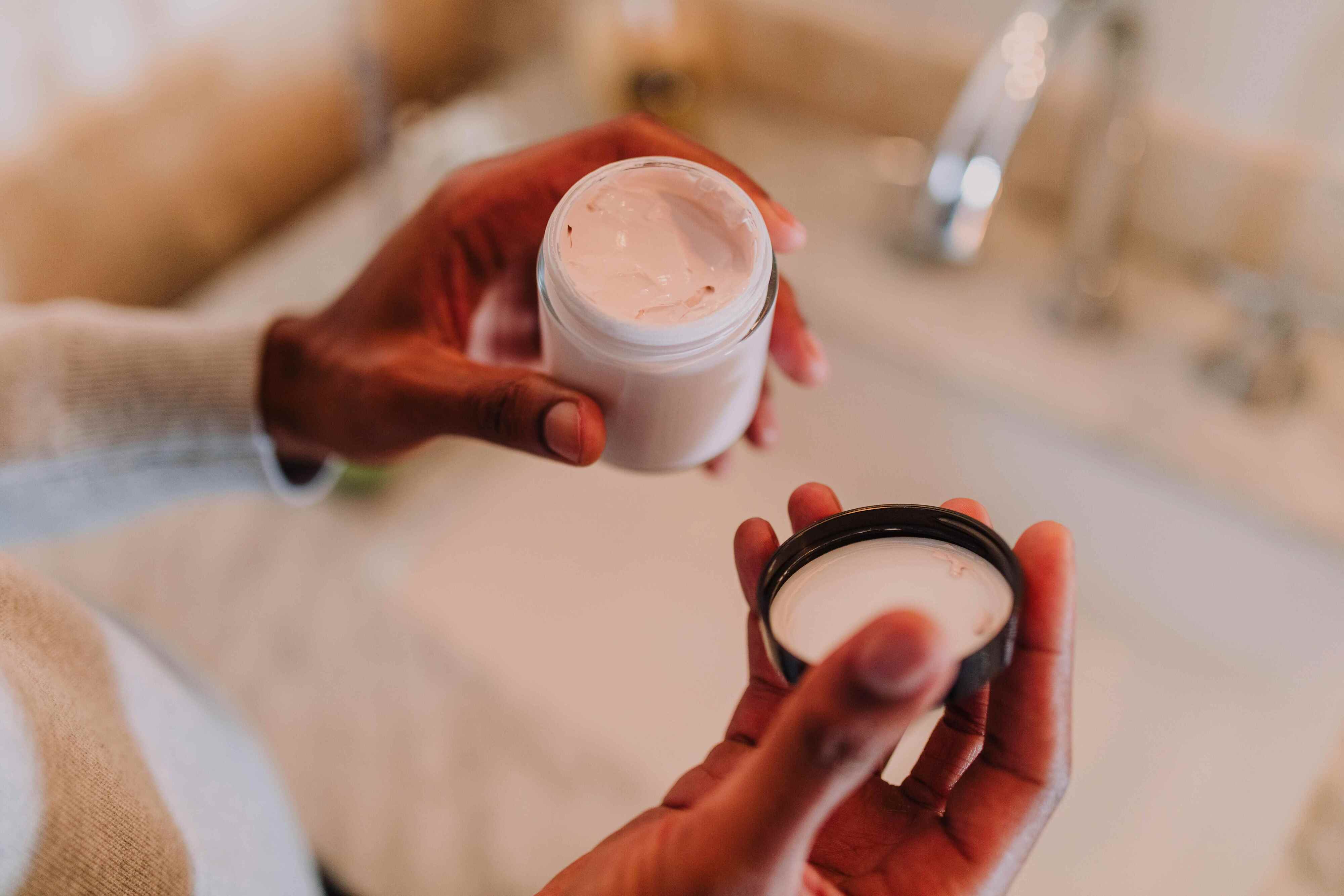A Complete Guide to Skin-Boosting Vitamins and How to Take Them

Key Summary
-
Skin health relies on essential vitamins and minerals that support repair, hydration, and protection.
-
Nutrients like Vitamin A, C, E, and Omega-3 fatty acids help combat signs of aging, inflammation, and environmental damage.
-
Scientific studies suggest that while a well-balanced diet provides skin-boosting nutrients, supplements may help address deficiencies or enhance skin function.
-
Not all supplements are equally effective—choosing high-quality formulations and taking them correctly is key to seeing results.
-
Over-supplementation can sometimes lead to skin concerns, making it important to follow safe dosage guidelines.
Why Vitamins Matter for Skin Health

Photo by Darina Belonogova from Pexels
Healthy skin isn’t just about what you apply topically—it’s also about nourishing your skin from within. Vitamins play a critical role in maintaining skin elasticity, hydration, and protection against environmental stressors. Deficiencies in key nutrients can lead to dullness, breakouts, premature aging, and even chronic skin conditions.
How Nutrients Support Skin Function
Each vitamin and mineral has a unique role in skin health:
-
Vitamin A stimulates collagen production and speeds up skin cell turnover.
-
Vitamin C enhances skin brightness and strengthens collagen.
-
Vitamin E protects the skin barrier from oxidative stress.
-
Omega-3 fatty acids reduce inflammation and improve skin hydration.
-
Zinc supports acne, wound healing and regulates oil production.
Can Supplements Improve Your Skin?
Research suggests that while topical skincare is important, supplements may enhance skin health by addressing nutrient deficiencies. A well-rounded approach, combining a balanced diet with targeted supplementation, can provide optimal results.
The Best Vitamins for Skin Care

Image by Alexandr Ivanov from Pixabay
Collagen
Collagen is the most abundant protein in the skin, responsible for maintaining firmness and elasticity. However, natural collagen production declines with age. Hydrolyzed collagen supplements have been shown to improve natural skin hydration and reduce fine lines, with studies suggesting visible results after 8-12 weeks of consistent use.
Vitamin A – The Anti-Aging Powerhouse
Vitamin A, particularly in the form of retinol and carotenoids, supports skin renewal and helps reduce fine lines and acne. However, excessive intake can lead to dryness and irritation, making balanced consumption key.
Fish Oil
Rich in Omega-3 fatty acids, fish oil helps reduce inflammation and improve skin hydration. Studies suggest that it may help soothe conditions like eczema, psoriasis, and acne by supporting the skin barrier function.
Biotin
Known as Vitamin B7, biotin is often marketed for hair and nail growth, but it also supports skin health. Deficiency in biotin can lead to dry, flaky skin and increased sensitivity.
Vitamin C – Brightening & Collagen Boosting
Vitamin C is a potent antioxidant that neutralizes free radicals, boosts collagen synthesis, and brightens skin tone. Clinical research highlights its role in reducing hyperpigmentation and improving overall skin texture.
Vitamin E – The Skin Barrier Protector
Vitamin E works alongside Vitamin C to protect the skin from UV damage and enhance moisture retention. It also has anti-inflammatory properties that help calm irritated skin.
Vitamin D – The Skin Healer
Vitamin D supports skin cell growth, repair, and immune function. Deficiency has been linked to psoriasis, eczema, and increased sensitivity.
Vitamin B Complex – Hydration & Barrier Repair
B vitamins, particularly niacinamide (B3) and pantothenic acid (B5), help boost hydration, improve skin barrier function, and reduce redness.
 Nicotinamide Vitamin B3 Oral Vitamins (120 Tablets)
Nicotinamide Vitamin B3 Oral Vitamins (120 Tablets)

Propaira NAD+ Nicotinamide ribosome Supplement
Omega-3 Fatty Acids – The Ultimate Skin Hydrator
These essential fatty acids help lock in moisture, reduce inflammation, and support a healthy skin barrier. Omega-3s are particularly beneficial for those with dry or eczema-prone skin.
Zinc – The Acne-Fighting Mineral
Zinc plays a crucial role in wound healing, oil regulation, and acne prevention. Research suggests that individuals with acne often have lower levels of zinc, making supplementation beneficial.
Multinutrient Supplements
For those with multiple deficiencies, a high-quality multivitamin containing essential skin nutrients may be beneficial. However, individual needs should be assessed before choosing a broad-spectrum supplement.
Prebiotics
A healthy gut can lead to healthier skin. Prebiotic supplements support gut balance, which may help promote a clearer, more radiant complexion.

Supplements vs. Topical Applications

Image by Iqbal Nuril Anwar from Pixabay
While topical skincare delivers direct benefits to the skin’s surface, supplements work internally to provide long-term improvements. A combination of both approaches often yields the best results.
For example:
-
Vitamin C serum protects against sun damage, while Vitamin C supplements boost collagen internally.
-
Niacinamide cream strengthens the skin barrier, while oral B3 supplements provide hydration from within.
Related: Mastering Your Ideal Skin Care Routine
How to Choose the Right Skin Supplements
1. Whole Foods vs. Supplements
While whole foods should always be the primary source of nutrients, supplements may help fill gaps in the diet.
2. Are Multivitamins Good for Skin?
A well-formulated multivitamin can support overall skin health, but individual deficiencies should be addressed separately for the best results.
3. What to Avoid When Taking Skin Supplements
-
Excessive doses of fat-soluble vitamins (A, D, E) can cause toxicity.
-
Synthetic additives and fillers in low-quality supplements may cause skin irritation or digestive issues.
-
Over-supplementing zinc can disrupt copper levels, leading to imbalances.
Common Food Sources to Get the Most Vitamins for Skin
Incorporating nutrient-rich foods can naturally support skin health:
-
Vitamin A: Sweet potatoes, carrots, spinach
-
Vitamin C: Citrus fruits, bell peppers, strawberries
-
Vitamin D: Salmon, eggs, fortified dairy
-
Vitamin E: Nuts, seeds, avocados
-
Omega-3s: Fatty fish, flaxseeds, walnuts
-
Zinc: Pumpkin seeds, beef, chickpeas
For more on how diet affects skin health, check out our guide on diet and acne.
Can Taking Too Many Vitamins Harm Your Skin?
Yes, excessive supplementation can lead to skin issues such as breakouts, dryness, or irritation. Some examples include:
-
Too much Vitamin A → Dry, peeling skin
-
Excess B12 → Acne flare-ups in some individuals
-
High doses of biotin → Potential interference with lab tests and breakouts in some people
Always consult a healthcare provider before taking high doses of any supplement.
Glow from Within with Expert-Led Skincare & Nutrition for Radiant Skin
While supplements play a key role in skin health, a customized skincare approach ensures lasting, visible results. At Skin to Heart, we combine expert knowledge with evidence-based treatments to address your unique skin concerns. Whether you're dealing with enlarged pores, pigmentation, or other skin challenges, our tailored solutions help you achieve a radiant, healthy glow.
Book a consultation today and take the first step toward your best skin!
Frequently Asked Questions About Skin Care Vitamins
How long does it take for vitamins to improve skin health?
Most people see improvements within 4-12 weeks, depending on the vitamin and deficiency level.
Which vitamins should not be taken together?
-
Avoid taking zinc and copper at the same time, as they compete for absorption.
-
Iron and calcium should not be taken together.
Do I need a blood test before taking skin supplements?
While not always necessary, testing for Vitamin D, iron, and zinc levels can help determine deficiencies.
Can skin vitamins help with specific skin concerns like acne, rosacea, or eczema?
Yes, nutrients like Vitamin A, Omega-3s, probiotics, and zinc are beneficial for these conditions.
Can I get enough skin-boosting vitamins through diet alone?
A nutrient-rich diet provides most skin-supporting vitamins, but supplements may help fill gaps.
Can certain vitamins make your skin break out?
Yes, excess B12, biotin, or iodine may trigger acne in some people.
- Tags: skincare
0 comments

